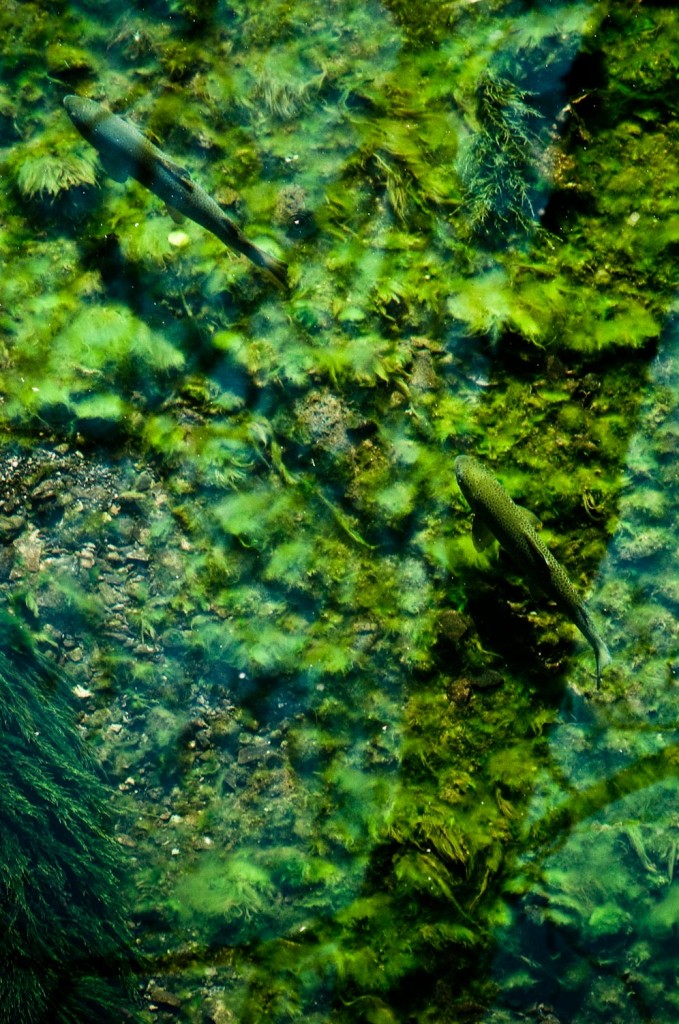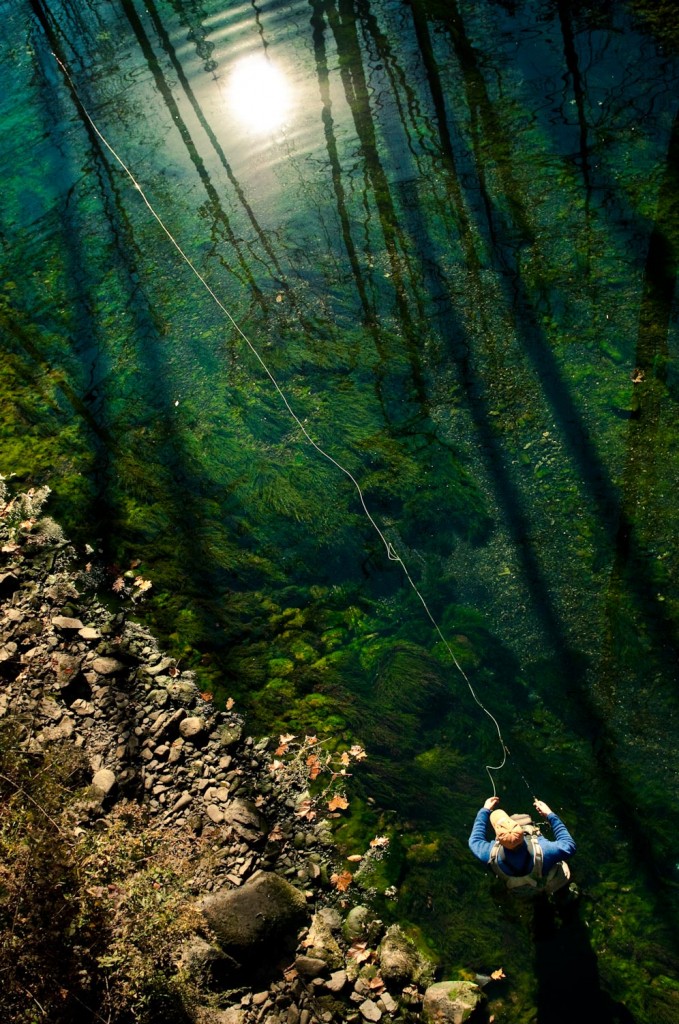When the Going Gets Spooky : Photos Louis Cahill
Do you ever find yourself sight fishing to trout in big flats on the river? It’s as clear as water can get, and as flat and calm as can be. There are plenty of visible trout but they’re super spooky. What can you do to increase your odds at catching trout in these situations? Try these six tips that should stack the odds in your favor.
1. Use a long and fine leader.
Your standard 9′ leader isn’t going to do the job in most instances. You are better off going with a 12′ leader, or even longer in some cases, that will allow you to lay out your fly with a super soft presentation. The longer leader will also help keep your fly line out of view from the ultra observant trout. Selecting a specialty dry fly leader that’s supple, and not stiff will aslo help you get a better drag free drift when dealing with intricate water currents. On a side note, you should do away with your fluorescent orange fly line, instead spool up your reel with a more natural and subtle fly line color like olive or grey.
2. Downsize your Tippet
When you are dealing with crystal clear water conditions and spooky trout, you should not hesitate to downsize your tippet. I personally wouldn’t start out using anything lighter than 6x tippet on flat, clear water. If you get refusals from the trout, or if you’re using super small fly patterns sizes 22 or smaller, you had also better be prepared to breakout those tippet spools of 7x and 8x. It’s very important to match the tippet size with the size of the fly in order to get a more natural drift with your fly.
3. Downsize the weight of your fly rod (4wt or lighter).
Downsizing your fly rod is probably one of the most under rated tips for increasing your odds at hooking up with spooky trout on flat water. A lower weight fly rod will help you lay out softer csts decreasing the chance of spooking your trophy trout, but even more importantly, because the fly line itself will weigh much less, it will allow you to present your cast on the water much quieter. The smaller the weight fly line the lighter it weighs and less noise it will make when it lands on the water.
4. Approach the stream from the right side.
Take the time to find out where the sun is located so you don’t end up casting shadows on the water and spooking the trout before you even make a cast. I’ve blown many chances over the years not paying attention to the position of the sun in the horizon. Planning out how you’ll get into position under the radar of your finned adversary will pay huge dividends in the end.
5. Be extra stealthy.
If you’re not patient, and willing to move super stealthy, the odds are going to be stacked up against you. Spooky trout call for fly anglers to move two speeds slower and often sit and wait for a good while once they get into position before making a their first cast. Doing so will allow any trout that might have been alerted to your presence to calm down and resume feeding. Don’t forget to wear your earthy tone colors as well. And once you’ve got into position try utilizing an effiecient presentation cast like a water haul cast. This will eliminate excessive false casting and put your fly into play on your first cast.
6. Fish to singles.
The more trout eyes looking up on flat calm water the more chances are that one of them will bolt during your presentation cast. Often you’ll be more successful if you fish to individual fish instead of pods of two, three, or four trout. This is quite the opposite of most fishing conditions, where you actually want to target the numbers in riffles and other more turbulent water.
I hope this helps some of you out there when you encounter flat water with nervous fish. Landing smart spooky trout in tough water conditions can provide fly fisherman with some of their most rewarding catches on the water. To be successful you need to keep the right mind-set and follow these tips laid out above.
Keep it Reel,
Kent Klewein Gink & Gasoline www.ginkandgasoline.com hookups@ginkandgasoline.com


The redfish flats near Savannah have been under increased fishing pressure this summer and fall, the fish are spooked and wary. They have seen it all. I have been employing many of these same techniques to get hooked up. Longer, finer leaders, smaller flies. Stealthy approaches and longer casts have become the norm. I do however sort of welcome the challenge of educated fish. We don’t fly fish to make it easier.
So true. I was talking to a friend who guides in the Keys the other day about something unrelated to fishing, and he said, of course I want to do it the hardest way possible, that’s why I fly fish. How’s the fishing been down in Savannah?